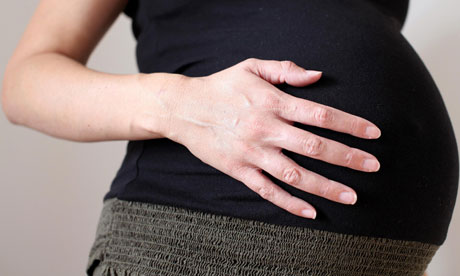
Heavy drinking during pregnancy could alter the genetic makeup of unborn babies' brains, causing mental and behavioural problems.
People born to alcoholic mothers are at risk of problems ranging from poor brain development and faulty nervous systems to a loss of hearing and vision that persists throughout their lives.
Although the medical conditions caused by heavy drinking in pregnancy are well documented, scientists have been less sure about how alcohol causes such irreversible damage to the developing brain.
To investigate, a team led by Jerold Chun, a neuroscientist at the Scripps Research Institute in California, studied how alcohol affected the brains of mice as the animals grew in the womb.
Specifically, researchers looked at the numbers of chromosomes in the foetuses' brain cells before and after exposure to alcohol.
While most brain cells in healthy mice carry 40 chromosomes, around a quarter of neurons show "aneuploidy", meaning they have a few more or less than usual. Human brains are a similar mosaic of neurons that have lost or gained a few chromosomes.
The medical implications of this jumble of chromosomes are not well understood, but some changes are known to have a dramatic effect on brain development. The mental problems caused by Down's syndrome, for example, are caused by an extra copy of chromosome 21.
"Down's syndrome tells us there are some aneuploidies that could profoundly influence brain function," Chun told the Guardian. "One possibility was that drugs or alcohol could alter the fabric of the developing brain and that would manifest later on as various disabilities."
In the study, Chun's team gave pregnant mice between 3mg and 4.5mg of ethanol for every kilogram of bodyweight – the equivalent of two or three bottles of wine for an average woman. The alcohol was injected two weeks into pregnancy, when the nervous systems of the foetuses were beginning to form.
The effect of the alcohol was swift and dramatic: when the scientists examined the foetuses' brains one day later, they saw a threefold rise in severe aneuploidy, or neurons with more than five extra or missing chromosomes.
Some mice in the study were given high doses of amphetamines (10mg per kilogram of body weight) instead of alcohol to see whether drug abuse during pregnancy also had a noticeable effect on foetuses' brains.
This caused a tripling in mild aneuploidy, which involved the loss or gain of fewer than five chromosomes in the affected brain cells.
The study is the first to show that heavy drinking and drug abuse in pregnancy can trigger dramatic changes to chromosomes in the developing brain.
What remains to be seen is whether similar damage occurs when alcohol is drunk, which gives it time to be absorbed and broken down by the liver. In the study, the animals were injected, meaning they received the full amount instantaneously.
"This represents a new, unrecognised basis for altered neural function, which could contribute to developmental defects seen in animal models and human patients," Chun said.
Details of the work were presented at the Society for Neuroscience meeting in Washington DC on Sunday.
In the next stage of the research, Chun's team hope to find out whether some chromosomes are affected more than others, how well the brain repairs the genetic damage, and whether the changes can explain particular developmental and behavioural problems seen in humans.

